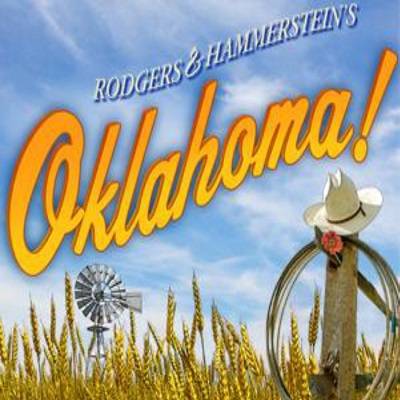Theatre comes in all sizes, folks. There are little black-box two-handers, and there are “third-chorus-member-from-the-left” productions with more bodies than names. But, even in musical theatre, where it never hurts to fill a space with more voices and bigger sound, there are big shows, and then there are big shows. When the curtain rises on Champaign-Urbana Theatre Company’s upcoming production of Rodgers & Hammerstein’s musical classic Oklahoma!, you’ll see a cast of more than 50 souls—including Jesse Trieger, Liz Banaszak, Chloe Ward, Ray Essick, and Jenny Gleason in the leads as well as numerous dancers and chorus.
The task of wrangling such a group to tell a well-known and well-loved story falls to Stephen Fiol (who most recently directed Parkland College Theatre’s Fiddler on the Roof), with the aid of conductor Dave Ivy and Musical Director Liz Martin.
For those who haven’t kept up with musical theatre for the last seven decades, the plot goes something like this: there is conflict between cowboys and farmers in the majestic countryside, and local men and women flirt and dance and couple up. That’s an oversimplification, of course, and it’s not quite as fluffy as all that, but I honestly don’t want to spoil anything for anyone who hasn’t seen the show in person. There’s a lot going on, and its development is better seen than read. (Like most theatre, come to think of it.)
I had occasion to speak with director Steve Fiol (albeit by email), and he was able to shed a little extra light on his introduction to the musical and his approach to its width and breadth.
***
Smile Politely: I remember seeing a community theatre production of Oklahoma! back when I was a kid, and it made quite an impact. It might have been the first musical I ever saw, in fact. Since then, I’ve seen the classic film version, and I watched a recording of Hugh Jackman’s turn as Curly for Trevor Nunn. What was your first encounter with this show?
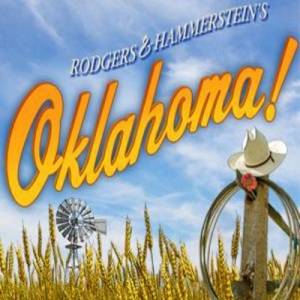 Stephen Fiol: I grew up in India and became a US resident when I came to college at age 18. The year was 1963 and, although Oklahoma was already 20 years old, it still was very popular among the general public and on university campuses in particular. In 1965 I entered an inter-collegiate talent show in Kansas with another music major and sang “People Will Say We’re in Love” and “Surrey with the Fringe on Top.” We won first place in a very crowded field of performers. Although I certainly had heard the music to Oklahoma before, that was my first direct contact with the show.
Stephen Fiol: I grew up in India and became a US resident when I came to college at age 18. The year was 1963 and, although Oklahoma was already 20 years old, it still was very popular among the general public and on university campuses in particular. In 1965 I entered an inter-collegiate talent show in Kansas with another music major and sang “People Will Say We’re in Love” and “Surrey with the Fringe on Top.” We won first place in a very crowded field of performers. Although I certainly had heard the music to Oklahoma before, that was my first direct contact with the show.
SP: Perhaps because of my early exposure to the show, and although it’s quite different from the type of theatre I’ve pursued myself, I’ve always had a fondness for it. If there’s a tried-and-true musical out there worth seeing, I imagine this would be it. What do you like about the show?
Fiol: As I have grown older, and having worked in the opera/musical theatre world for a very long time, I have come to appreciate the historical value of this piece. It broke the musical theatre mold in so many ways and set the stage for “the golden age of Broadway musicals.” Musicals would now not only contain lovely melodies but [would also] tell a story that went beyond mere entertainment. [Musicals henceforth] were peopled with three dimensional characters, contained formal dance numbers, and all elements—music, dialogue, comedy, dance—were germane to the plot.
SP: I think my favorite part of the show, then and now, would be the character Jud Fry. He fascinated me when I first saw the show, and he’s the character I think about when the title comes up. He’s a very problematic character, especially in a modern context. Would you mind sharing your approach to the character? Do you find him sympathetic?
Fiol: In Oklahoma, for an actor, Jud is probably the most interesting and difficult character to play. He is a criminal and holds deep carnal—even grotesque—desires, but carries such a level of isolation, loneliness, and passion that one might feel pity for him at times. He is difficult to like. It is important to understand the character of Jud in the context of the rugged Indian Territory at the turn of the century, where life was often short and dangerous, isolation a reality for many, and individualism was commonplace. Do I find him sympathetic? Yes, in the same way I might find a convicted prisoner sympathetic having lost his freedom but still holding deep human desires.
SP: Fair enough. (And best wishes to Jeff Dare, who will play Jud in the CUTC production.) In the short time I’ve known you, you’ve directed operettas like The Game of Love at the relatively small Station Theatre as well as big-cast Broadway shows like Fiddler on the Roof in larger houses like Parkland’s Miner Theater. Is there a glaring difference to you between directing for a small house versus a large auditorium?
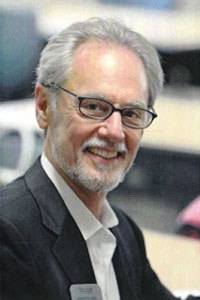 Fiol: For me there is certainly a significant difference between a small venue and a larger setting such as the Virginia Theatre. I would liken it to acting for the camera versus the need to project to an audience often some distance removed. Back in the 1980s, I spent a couple of seasons with the St. Louis MUNY OPERA in Forest Park [where] the outdoor theatre seats 12,000. I was actually performing in a production of Oklahoma and, during the week we performed, Robert Conrad (the TV actor from the series The Wild, Wild West) was in rehearsals for the lead in the musical Carnival. I was struck by how his acting, while clearly well-motivated when one was 20 feet from him was virtually not discernable at 100 feet and definitely not evident when standing 100 yards away in the back of the amphitheater. He was so accustomed to performing for the television camera that he reverted to that style of acting despite being in a large theatre space.
Fiol: For me there is certainly a significant difference between a small venue and a larger setting such as the Virginia Theatre. I would liken it to acting for the camera versus the need to project to an audience often some distance removed. Back in the 1980s, I spent a couple of seasons with the St. Louis MUNY OPERA in Forest Park [where] the outdoor theatre seats 12,000. I was actually performing in a production of Oklahoma and, during the week we performed, Robert Conrad (the TV actor from the series The Wild, Wild West) was in rehearsals for the lead in the musical Carnival. I was struck by how his acting, while clearly well-motivated when one was 20 feet from him was virtually not discernable at 100 feet and definitely not evident when standing 100 yards away in the back of the amphitheater. He was so accustomed to performing for the television camera that he reverted to that style of acting despite being in a large theatre space.
SP: I like a director who can answer a question with a story. (And that was a good one.) Is there one moment in the process so far that has proven especially rewarding? Something you can’t wait for an audience to see?
Fiol: I would point to The Dream Ballet, a 17-minute tour de force choreographed by Rebecca Nettl-Fiol based on the original Agnes de Mille choreography. The audience will not be disappointed.
SP: Any final thoughts for readers and potential audience members? Hopes? Admonishments?
Fiol: Oklahoma is a musical for EVERYONE. Bring the grandparents and children of all ages.
***
Having spoken to Mr. Fiol, I was genuinely intrigued to see his production, but its one-weekend stand at the Virginia makes a review (which would almost certainly publish after the show has already closed) problematic. A review, after all, isn’t only meant to critique the work; it’s also a message to the theatre-going public about what to expect and whether a show is worth their time.
So, what follows will serve as something of a compromise.
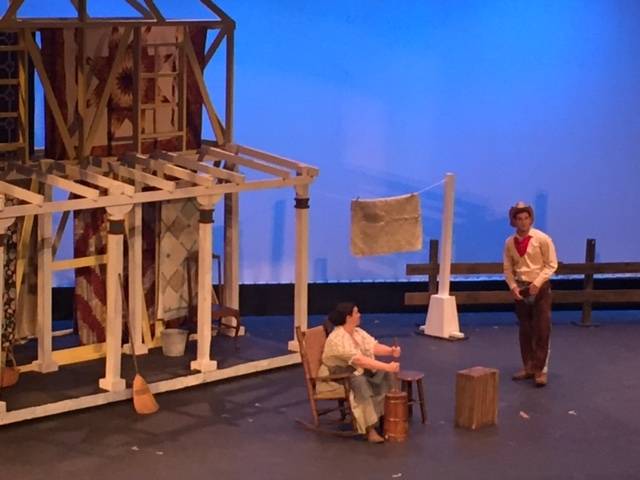
I attended last night’s dress rehearsal of Oklahoma in order to get a sense of the show. I did this fully aware that I would be seeing an unfinished product. But, if you’re a theatre person, you know that there is something special about seeing a play or musical before it is all the way cooked. There is an energy to the rehearsal process—even when the goings-on are imperfect—that is palpable and vibrating with possibility.
And no, what I saw Tuesday was not perfect. But I’m not going into specifics about what wasn’t finished or who had to take it from the top, because rehearsal is rehearsal. Instead, I’m going to tell you what they got right and why I think—with absolute conviction—that this show is worth your time, your money, and your applause.
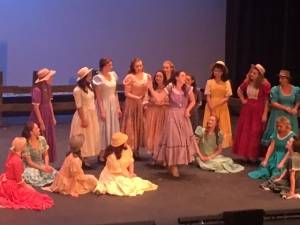 To begin with, this is a musical, so you should expect a goodly amount of singing and dancing. And this cast, from the top-billed leads on through to the ensemble dancers, delivers in a very real way. The pairing of Curly and Laury (played with charming earnestness by Jesse Trieger and Liz Banaszak) is magnetic, and the show’s best moments occur when one or both of them are on stage. I’m not one to use the word sublime, but their voices are worthy of the compliment.
To begin with, this is a musical, so you should expect a goodly amount of singing and dancing. And this cast, from the top-billed leads on through to the ensemble dancers, delivers in a very real way. The pairing of Curly and Laury (played with charming earnestness by Jesse Trieger and Liz Banaszak) is magnetic, and the show’s best moments occur when one or both of them are on stage. I’m not one to use the word sublime, but their voices are worthy of the compliment.
This element of earnestness is represented throughout the large and appealing cast, including standouts like Jenny Gleason’s Aunt Eller, Ray Essick’s Will, and Chloe Ward’s Ado Annie. Each of them grabs onto each moment of stage-time with both hands and gives the audience their all.
And since I brought him up in the interview, I feel obligated to comment on Jeff Dare’s performance as Jud Fry. I mentioned, previously, that I found Jud to be a compelling character. He’s not a good man; in fact, he’s something of a horror. But the Jud Fry of this production, acted and sung with fury by Dare, is captivating.
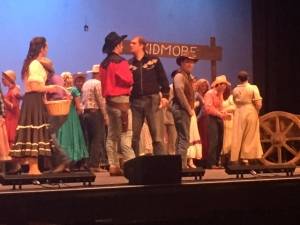 Fine performances aside, there are elements of the story that do not jibe with modern sensibilities. There is a tightrope to be walked, for a reviewer, in applauding the portrayal of a character or execution of a script even though the tone or message is one that lacks political correctness (or, as I like to think of it, simply correctness). There is something off-putting, for instance, in the way Laury’s fears about Jud (totally justified, by the way), are brushed aside by Aunt Eller early on. Similarly, the “court appearance” scene that ends the show may leave some viewers with a very different feeling than the one the composers intended.
Fine performances aside, there are elements of the story that do not jibe with modern sensibilities. There is a tightrope to be walked, for a reviewer, in applauding the portrayal of a character or execution of a script even though the tone or message is one that lacks political correctness (or, as I like to think of it, simply correctness). There is something off-putting, for instance, in the way Laury’s fears about Jud (totally justified, by the way), are brushed aside by Aunt Eller early on. Similarly, the “court appearance” scene that ends the show may leave some viewers with a very different feeling than the one the composers intended.
And oh, how do you solve a problem like Ali Hakim? (Seriously. I’m asking.)
On the other hand, I found it very surprisingly invigorating to watch Ado Annie (the girl who “cain’t say no”) refuse to be “slut-shamed” for living freely and doing what she likes. Her courtship may be corny, and the outcome may be predictable, but she cuts an interesting figure.
The same can be said about this production as a whole, really. For, while the jokes are old and the story oft-told, there are distinguishing marks and uplifting performances that set it apart.
***
For those planning to see CUTC’s production of Oklahoma, tickets are available at the Virginia Theatre box office, online at thevirginia.org, or can be charged by phone at 217-356-9063.
Performances will be August 4-6 at 7:30pm and Sunday, August 7th, at 2pm.








